Energy Scholars Cohort
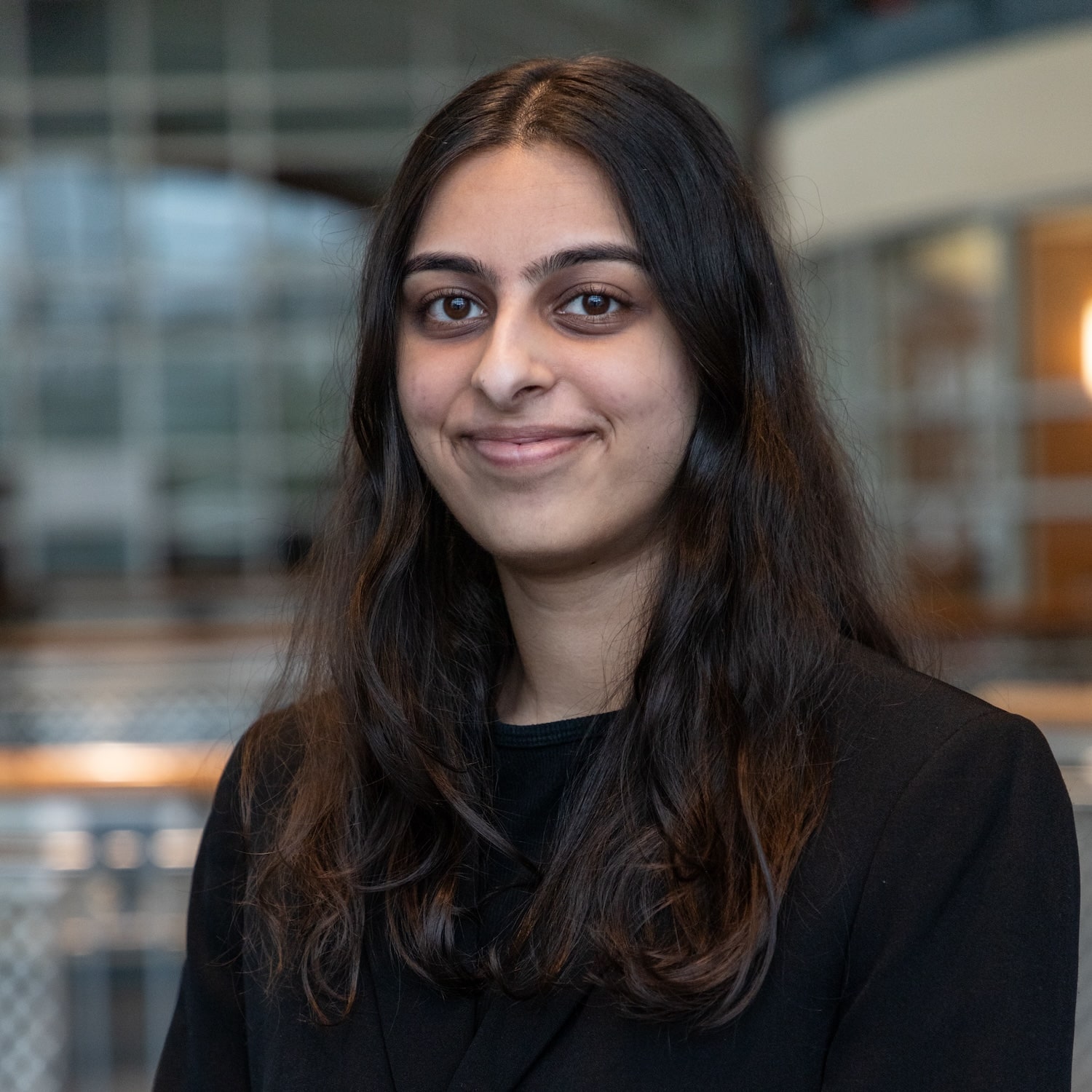
Urvi Bhatia
Urvi combines data analysis and coding skills to investigate the role of interfaces in the strength of cobalt-based intermetallics through computational simulations. By considering properties at the nanoscale, Urvi’s project aims to design next-generation structural materials with applications in the aerospace, energy, and automotive industries. Using the supercomputing cluster at the UH Data Science Institute, Urvi will perform molecular dynamics simulations of compression tests on the cobalt-based material separated by layers of aluminum or nickel. Analysis of these simulations will provide insights into the deformation mechanisms of the cobalt-based material. This project will prepare Urvi for a future career in mechanical engineering by providing a better understanding of applying data analysis to real-world problems.
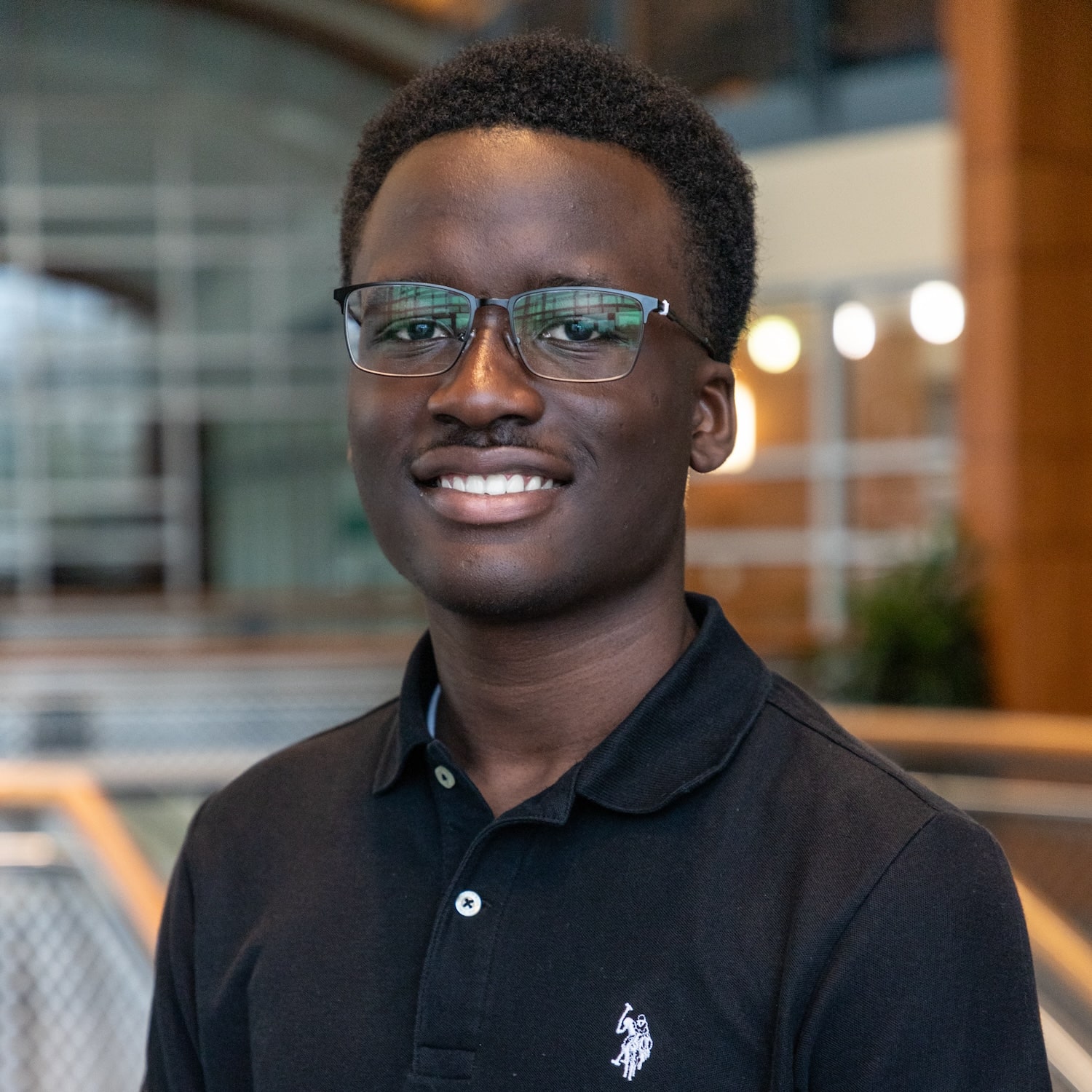
Oluwafolajimi Bolusteve
Oluwafolajimi combines his interest in electrical engineering with machine learning to predict net loads on renewable energy grids. The use of renewable energy has grown rapidly, but concerns are raised about dependency on renewable energy. His research focuses on solving this issue by predicting net loads using machine learning and data related to net load prediction, for example, historical data on weather, renewable energy generation, and energy load. In the future, Oluwafolajimi hopes to use this research for bigger grid systems dependent on renewable energy to predict and prevent potential power outages. He plans to use the experiences from this research to develop skills relevant to engineering fields.

Tayann Cobo
Tayann’s research focuses on utilizing her scope of mechanisms and lignin selectivity to prepare complex lignin model compounds. Lignin has recently gained prominence in biomass research due to its significant role as a major component in biomass production. Her goal is to prepare vanadium model compounds, and then investigate catalytic conditions on them. The catalytic conditions will vary depending on the synthesized model compound; each model compound with a variant of catalytic conditions will provide structure-activity insight and optimization of the model compound. Her journey promises to enrich the understanding of vanadium chemistry and provide intentional approaches to lignin valorization.

Viet-Joseph Dinh
Viet-Joseph’s research investigates the metabolic pathways of Sutcliffiella sp. NC1 during lignin depolymerization, comparing acidic and alkaline lignin extraction methods. Lignin, a key component of plant biomass, is abundant yet underutilized despite its potential for applications such as biofuels and industrial chemicals. His work evaluates how different extraction methods impact lignin depolymerization in spent mushroom substrate (SMS). Through analytical techniques such as LC-MS, GC-MS, and FTIR, he examines how enzymes such as laccases and peroxidases facilitate lignin breakdown into valuable aromatic metabolites. By comparing lignin depolymerization across treatments, Viet-Joseph aims to optimize lignin valorization for sustainable bioconversion of lignin into high-value products.

Alfredo Hernandez
Hurricanes significantly challenge energy management, disrupting consumption patterns and straining resources. Predicting energy demand during these weather events is crucial for optimizing resource allocation, preventing outages, and ensuring response strategies. Alfredo’s research tackles this issue by integrating advanced machine learning to develop a predictive model for energy consumption during Houston hurricanes. He utilizes Large Language Models to convert unstructured data from social media and news into structured insights, capturing behavioral indicators. These insights are integrated with weather and energy consumption data in a Long Short-Term Memory neural network to accurately forecast energy demand. To further enhance decision-making, Alfredo is developing a visual dashboard to present real-time insights. Alfredo is passionate about leveraging data science and machine learning to combat the challenges of energy management.

Safiyyah Khan
Safiyyah's research in architectural design explores the frontier of adaptive building materials, focusing on creating structures that dynamically respond to environmental changes. By studying materials that naturally respond to environmental conditions, she investigates how buildings can evolve beyond static barriers to become active participants in environmental regulation. Her methodology combines physical testing with digital simulations to bridge the gap between material innovation and practical architectural applications. Safiyyah’s work aims to develop comprehensive architectural guidelines for implementing these materials across different climate contexts, potentially transforming how future buildings interact with their environment while advancing sustainable design practices. This research stands at the intersection of material science and architectural design, offering practical solutions to reduce the environmental impact of the built environment.
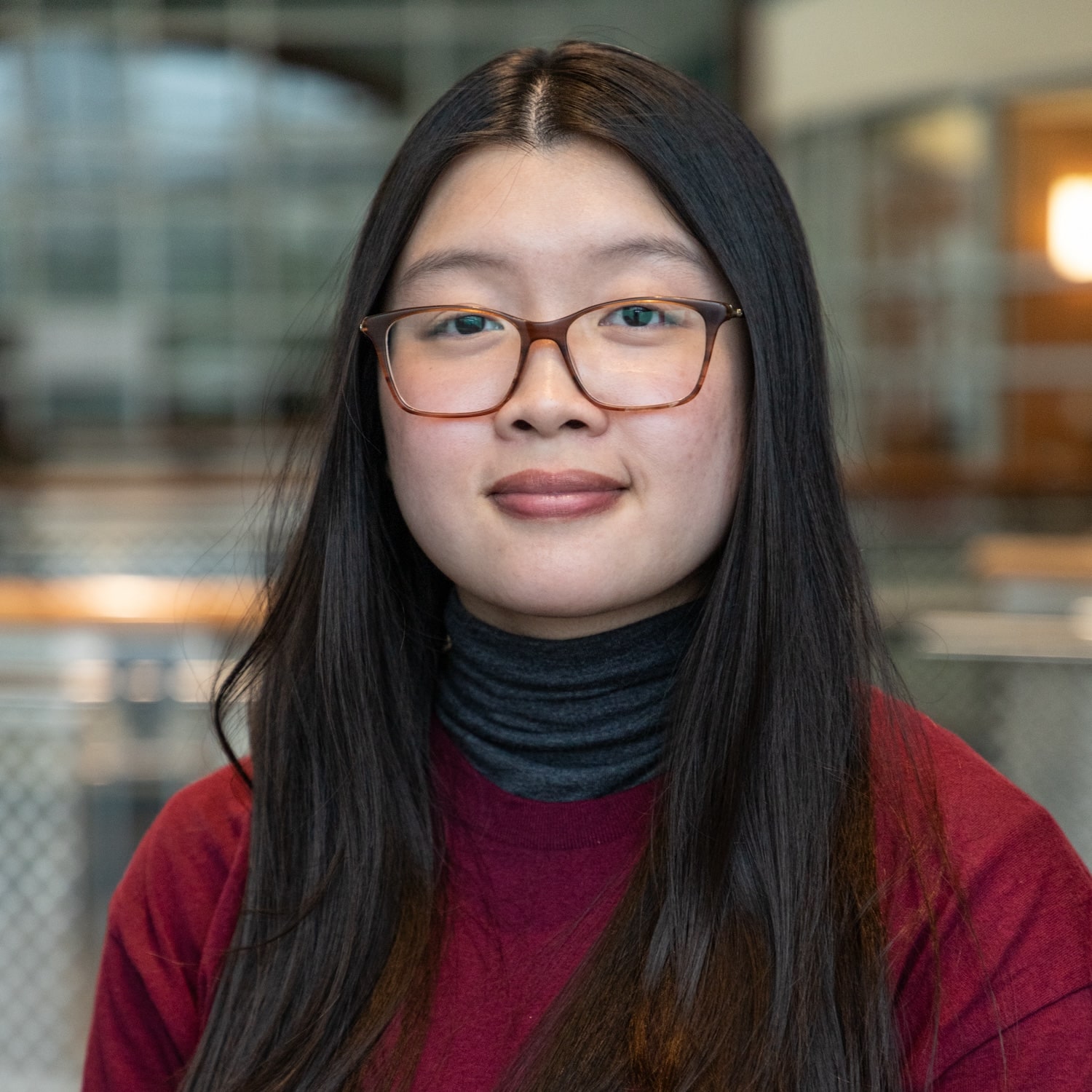
Pauline Nguyen
Being the second largest global carbon tank, soil offers a sustainable and unique opportunity as a long-term carbon sink, mitigating climate impacts and promoting ecosystem health. Pauline's research focuses on evaluating the viability of coastal prairie soils as long-term carbon sinks, as well as further analyzing carbon data to have a deeper understanding of and enhancing soil as a carbon capture method. To achieve this, Pauline will examine Total Organic Carbon (TOC) compositions present in soil using methods of ramped pyrolysis to determine the stability of the carbon present. With a growing passion for environmental research and conservation, and working in collaboration with the UH Center for Petroleum Geochemistry, Pauline is excited to contribute to carbon storage research, and potentially leveraging soil as a long-term carbon reservoir.
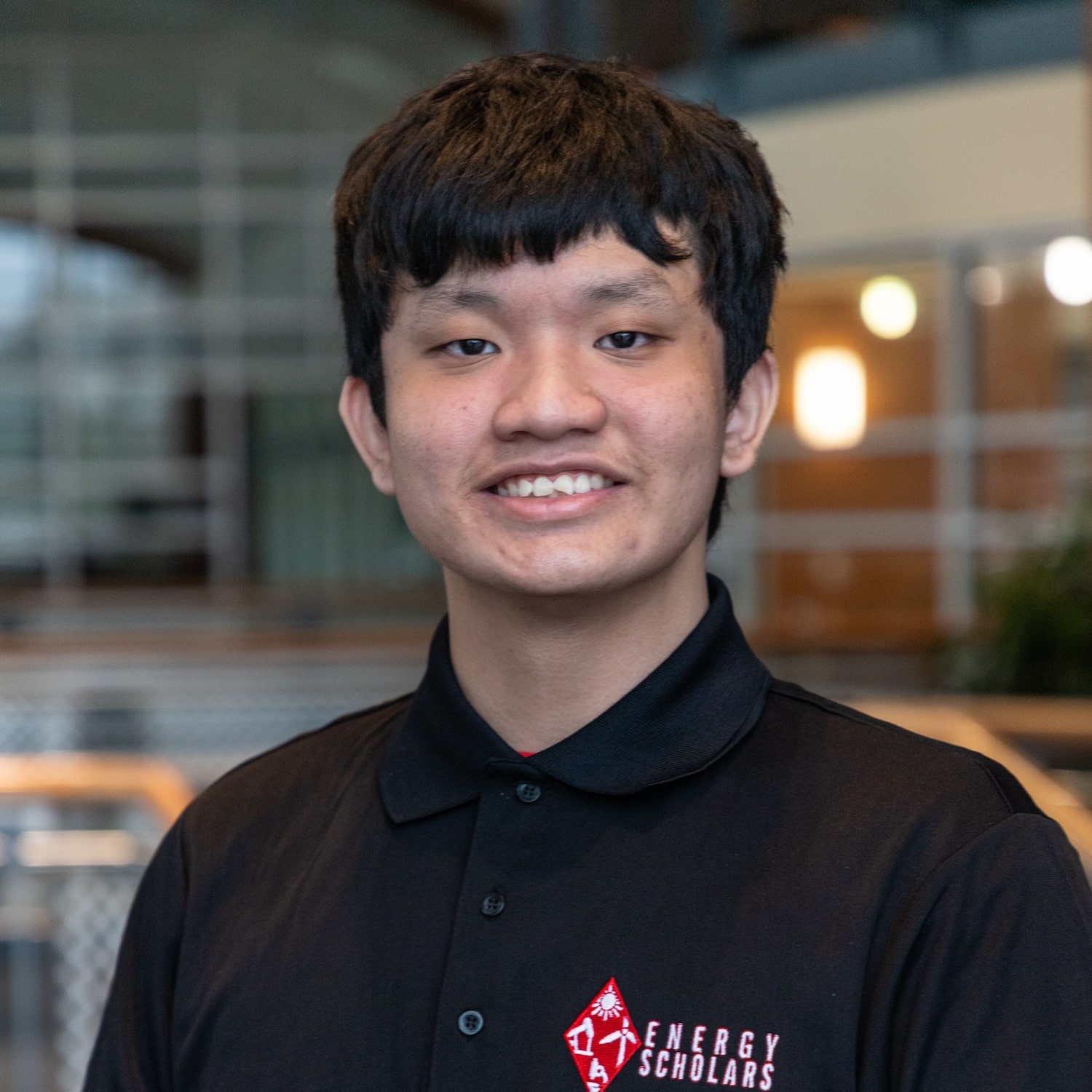
Han Nguyen
Han is developing a nationwide autopilot system aimed at enhancing traffic efficiency and minimizing energy waste through continuous vehicle connectivity. His research builds on Dr. Charles Peskin’s Matlab-based traffic simulation model by integrating the Houston road network using OpenStreetMap data, incorporating lane changes, and enabling vehicle communication across both local and global networks. Through the simulation of traffic dynamics and the optimization of vehicle interactions, Han seeks to reduce delays, accidents, and energy consumption, specifically addressing unpredictable lane-change behaviors that significantly contribute to accident rates and traffic delays. By mitigating these disruptions, the objective is to decrease the energy wasted per vehicle; while the reduction may seem minor for an individual car, it becomes substantial when considering the millions of vehicles on American roads.
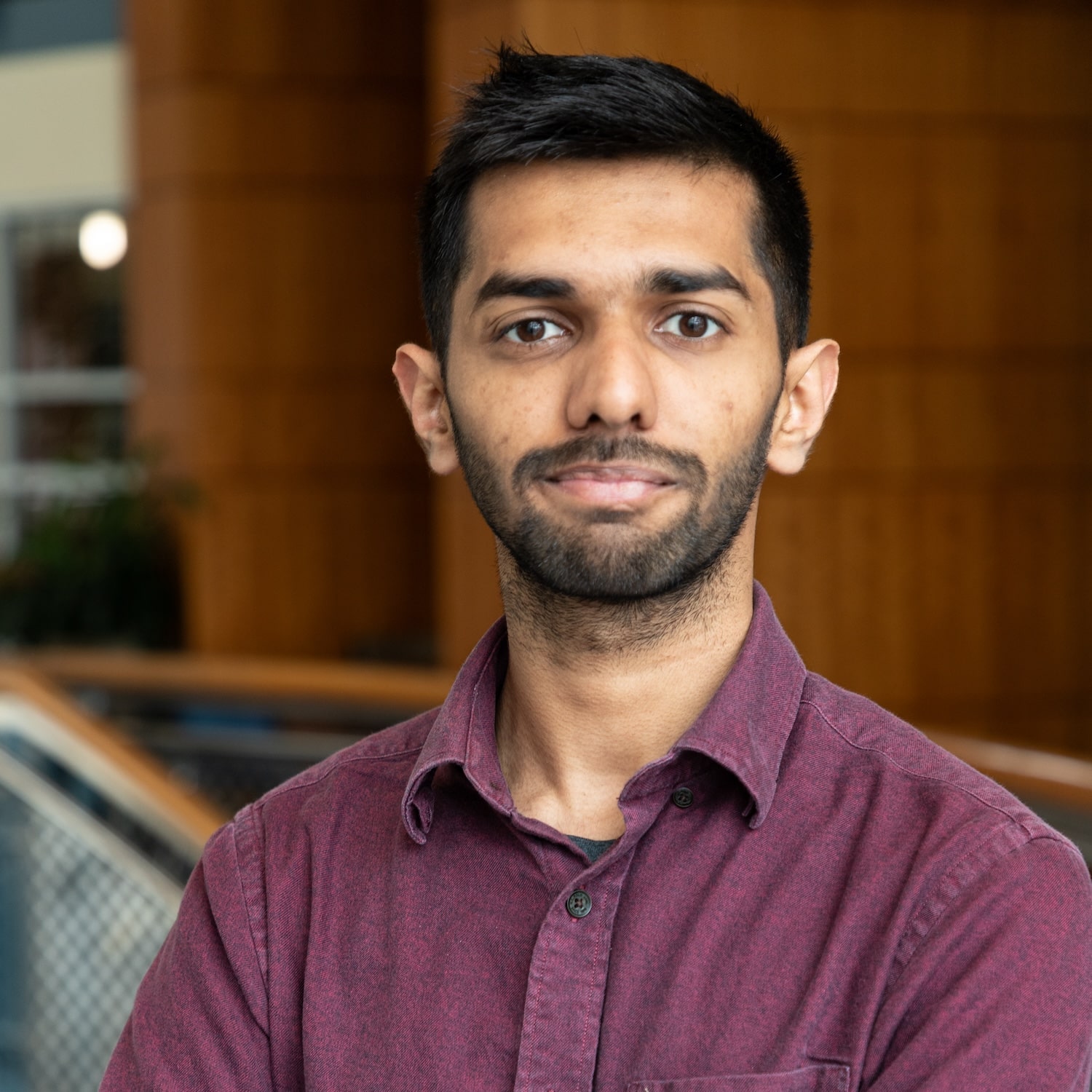
Dev Patel
Dev’s research focuses on developing sustainable alternatives for steam methane reforming (SMR), a process that significantly contributes to industrial CO₂ emissions. By utilizing Joule-heated reactors, his project aims to replace traditional fossil fuel combustion with renewable energy sources, addressing a major challenge in chemical manufacturing. Dev’s work involves designing advanced reactors, preparing metal substrate catalysts, and analyzing their performance to improve efficiency and scalability. Since Spring 2024, he has been conducting research in catalyst preparation and reactor design, gaining hands-on experience in sustainable energy technologies. Dev aims to contribute to the global transition toward low-carbon industrial processes and renewable energy integration, advancing innovative solutions to reduce greenhouse gas emissions.
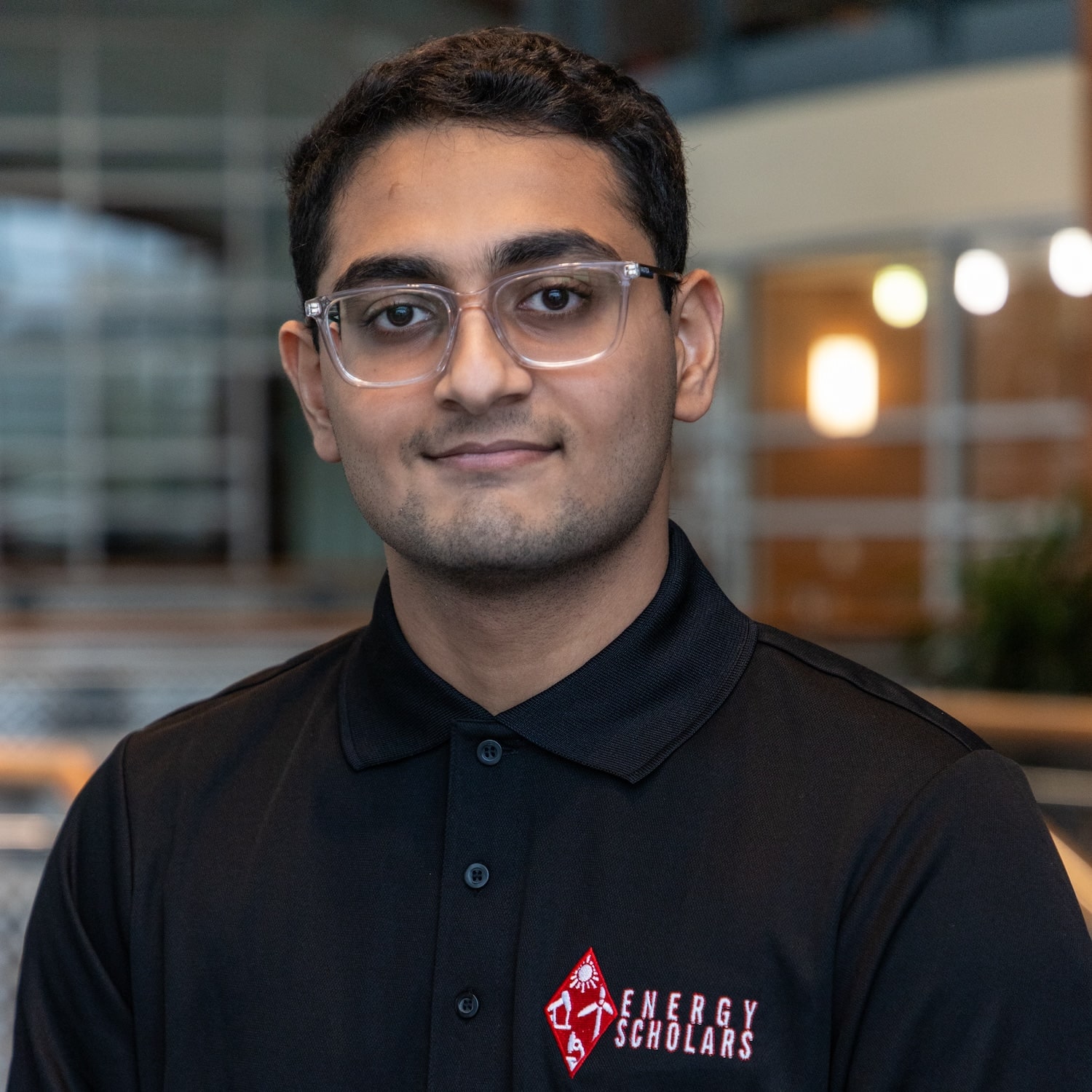
Aayush Patel
Aayush's has a strong passion for environmental sustainability and his research focuses on green macroalgae (GMA) and its utilization to produce bioethanol. Biofuel from green macroalgae is more sustainable than traditional first-generation biofuels such as corn ethanol, since green macroalgae require significantly less land and resources to grow than other traditional crops. Aayush's research will also utilize the same technologies traditionally used to produce first generation biofuels, to produce third generation biofuels from green macroalgae. In addition to in current research, Aayush also has future aspirations to do research in the medical field and attend medical school.
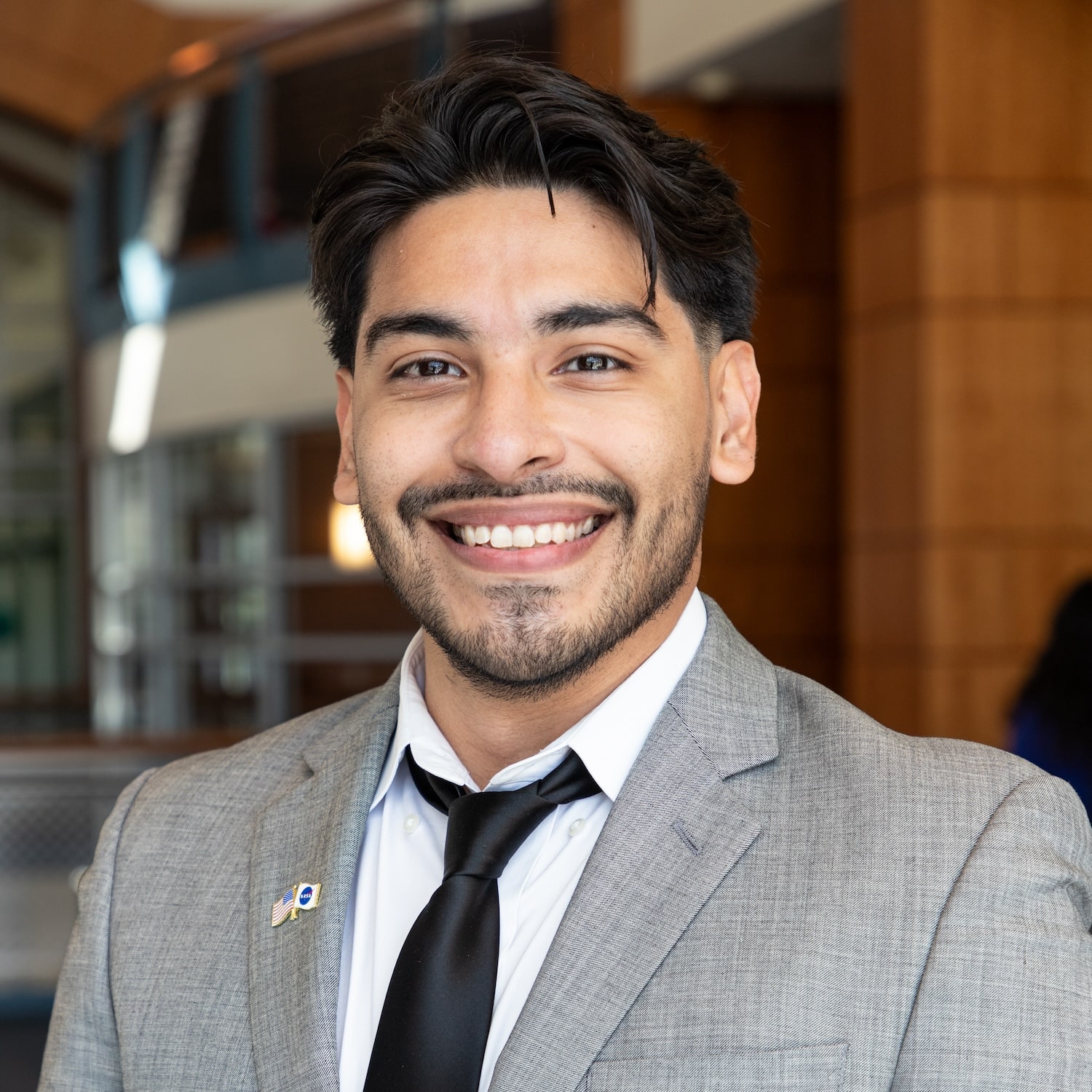
Alexander Ramos
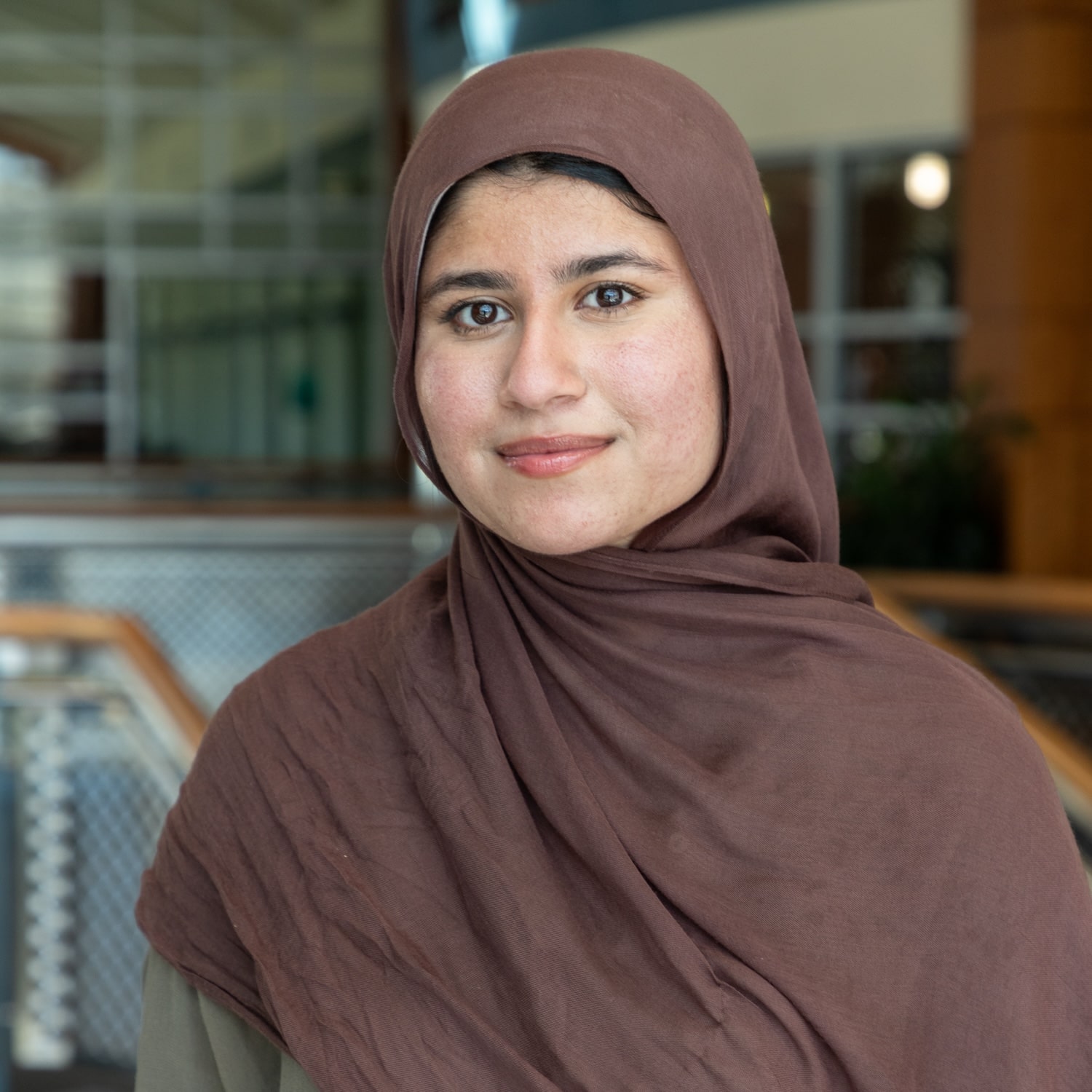
Umema Fatima Sajjad

Hannah Santina
Hannah is committed to advancing sustainable solutions for industrial processes to address environmental challenges. Their current research focuses on developing cleaner, energy-efficient methods for iron production through an innovative electrowinning process. This approach aims to significantly reduce carbon emissions by eliminating the need for combustion in traditional manufacturing. By optimizing key components of the electrowinning system, such as the impeller design, Hannah is working to improve the efficiency of the process and validate computational models through experimental testing. Their work contributes to the broader effort of creating environmentally responsible technologies that support a more sustainable future.
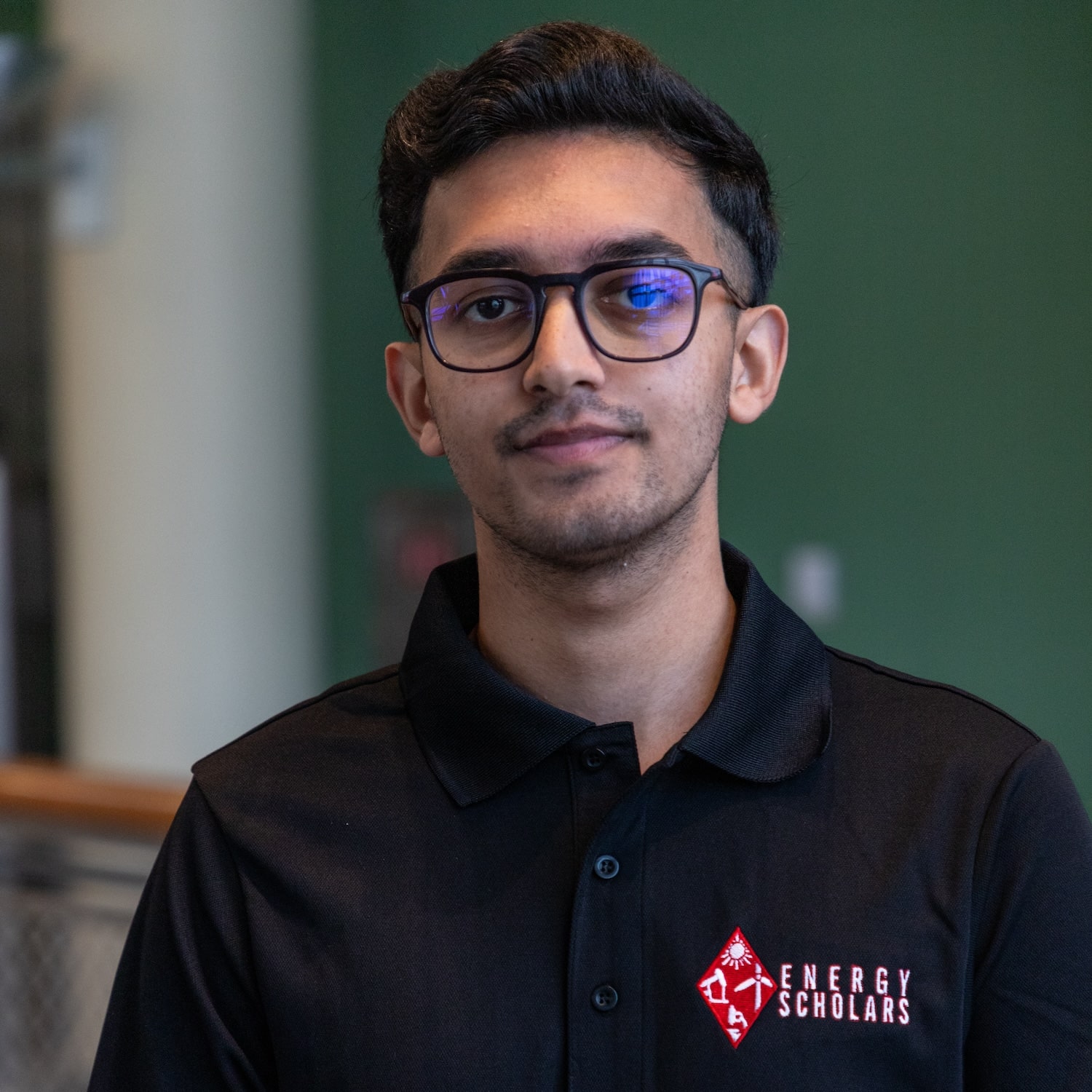
Avi Sethi
Avi's research enhances the durability and sustainability of materials used in wind turbine blades. Addressing the brittleness of epoxy resins, Avi explores sustainable alternatives to improve their performance and environmental impact. One approach involves toughening traditional epoxy resin with thermoset blends. Another replaces petroleum-derived epoxy resin with a lignin-based alternative and uses thermoset blends for toughening, creating eco-friendly materials. Using ultra-small-angle X-ray scattering (USAXS) and optical microscopy, Avi analyzes the microstructure of these blends and their mechanical behavior, examining phase separation during curing. This work aims to reduce waste, improve wind turbine longevity, and advance renewable energy sustainability. Avi plans to continue innovating sustainable materials post-program.
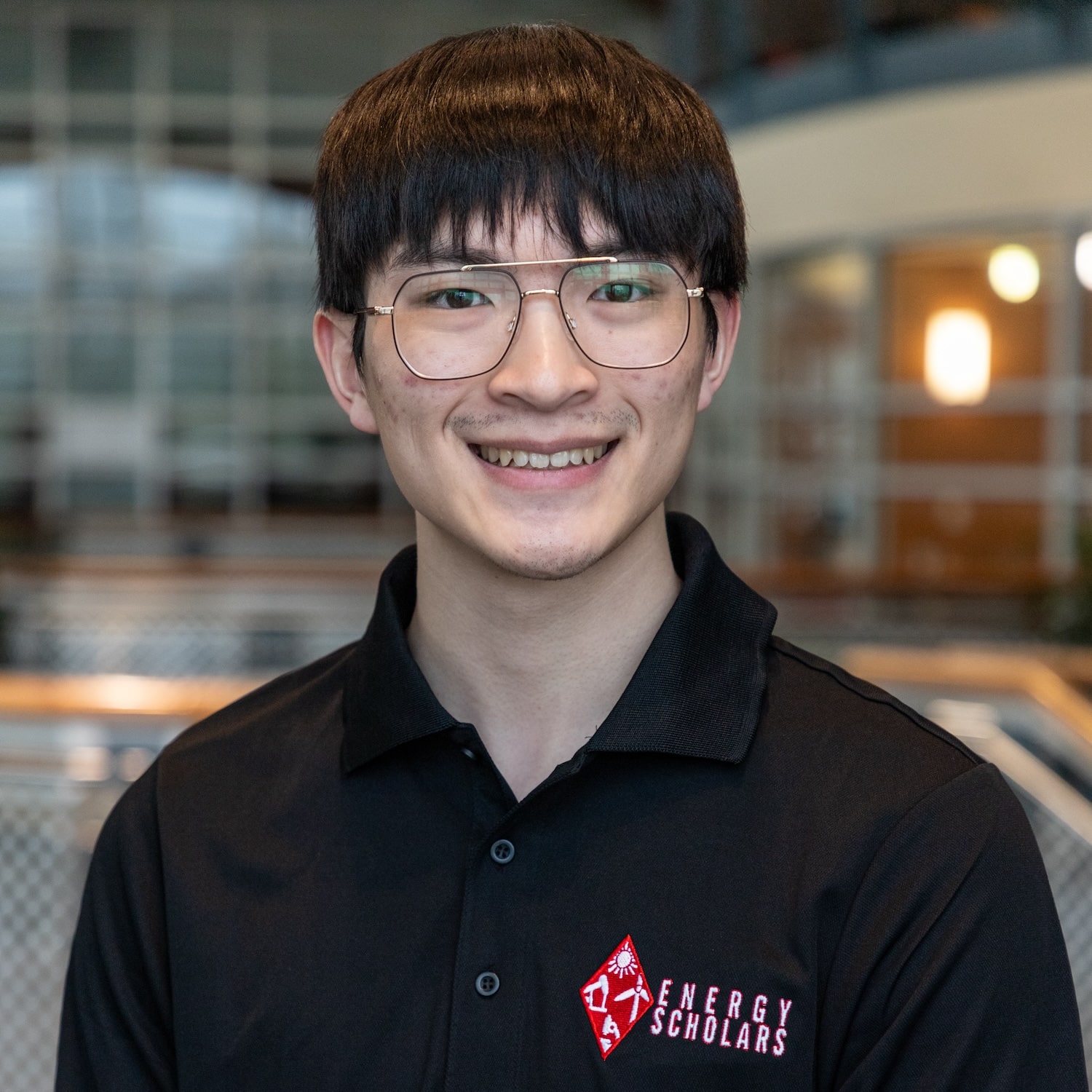
Sean Tan
Today's plastic economy focuses on producing cheap, virgin plastics, which drain the limited fossil fuels. Sean is working towards a circular plastic economy that recycles and reuses plastic rather than making it from fossil fuels as a one-time-use commodity. His research focuses on applying various polymerization methods to synthesize telechelic functionalized polyolefins. His goal is to create recyclable functionalized polymers to increase the economic value of recycling. Lowering the energy cost of recycling will allow recycling to be a viable option for many companies and people. A circular plastic economy will help reduce plastic pollution and carbon emissions globally. Sean also aims to use the research skills gained to pursue further research in graduate school.
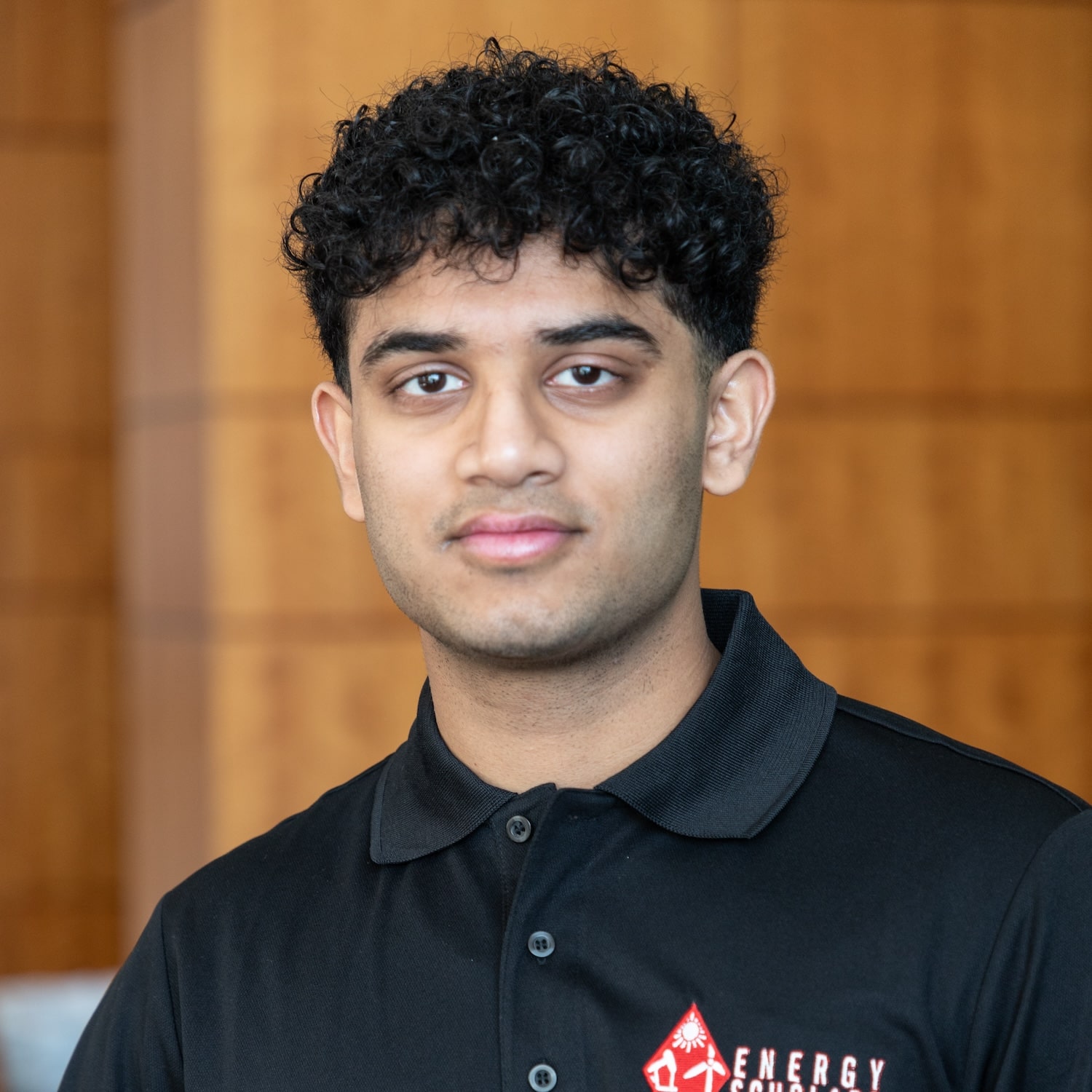
Pratham Vagga
Pratham’s research focuses on passive heating and cooling strategies to reduce global energy consumption by minimizing reliance on active cooling systems. By analyzing climate-responsive design techniques—such as natural ventilation, shading, and thermal mass—alongside the role of urban green spaces, he aims to enhance thermal comfort while lowering energy demand. His work explores how architects and urban planners can integrate these strategies to create more sustainable, resilient cities across diverse climates.